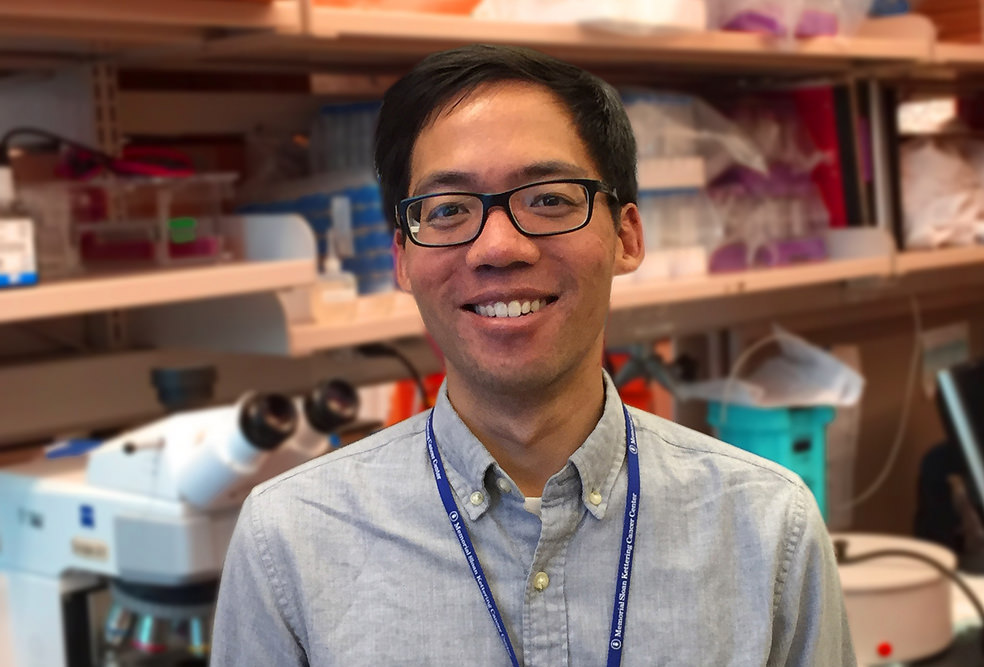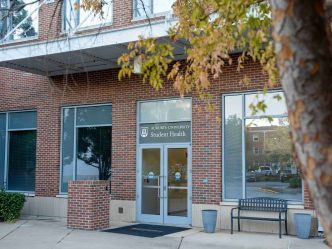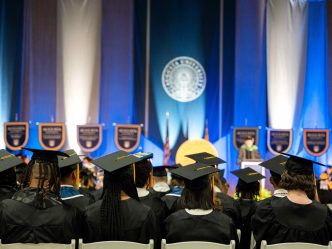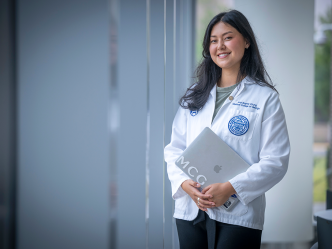A student at the Medical College of Georgia at Augusta University is part of a research team trying to prevent one of the most common complications of bone marrow and stem cell transplants, both common treatments for leukemia.
Daniel Chandra is one of five students nationwide to receive a Physician-Scientist Career-Development Award from the American Society of Hematology and is spending the next year working in the lab of Dr. Alan Hanash, a hematologic oncologist at Memorial Sloan Kettering Cancer Center in New York.
The complication, called graft-versus-host disease, happens when the donated immune cells, which come from a healthy person, recognize the recipient’s body, or the host, as foreign and begin an assault on its organ systems.
“In a transplant, what we want is something called the graft-versus-tumor or graft-versus-leukemia effect instead, when the transplanted cells attack the cancer, not the recipient’s body,” Chandra said.
While current therapies reduce graph-versus-host, they often have the side effect of also reducing the graft-versus-leukemia effect, because they are targeted at all immune cells and don’t differentiate between the graft cells or the host’s cells. That often leads to destruction of the stem cell or bone marrow graft, defeating the purpose of the transplant.
In graft-versus-host of the intestines, one of the most common forms, Chandra and Hanash believe that a well-known cytokine may be the answer to restabilizing the immune response.
Interleukin 22 is a known mediator of cellular inflammation. Because targets for IL-22 are found on epithelial cells but not on hematopoietic stem cells, they think by targeting the cytokine, they can quieten the immune response and stimulate epithelial regrowth, while also protecting the graft.
“We want to prevent the loss of the intestinal stem cells necessary for maintaining and regenerating the intestinal epithelium, which would mitigate the symptoms like nausea, vomiting and diarrhea,” Chandra said. “But we also don’t want the body to attack the donated cells. You’re looking for a balance.”
Graft-versus-host is the number-one cause of morbidity in stem cell and bone marrow transplants. In addition to nausea, vomiting and diarrhea, it can cause a variety of other symptoms, including rashes, jaundice and even liver damage.
Chandra, an Atlanta native who began medical school after graduating from Yale University in 2012, hopes to pursue a career in hematology/oncology.
 Augusta University
Augusta University




